To Be or Not to Be (1942)
“So they call me ‘Concentration Camp Ehrhardt’?”
|
Synopsis: |
|
Genres, Themes, Actors, and Directors:
Response to Peary’s Review: In Cult Movies 2, Peary states that “Cult movies are often born in controversy”, and describes in greater detail the reception this film had in 1942, just “three years after Germany invaded Poland” and “three months after the United States entered World War II”. He notes that Bosley Crowther of the New York Times was especially offended by the film; Crowther wrote, “To say [the film] is callous and macabre is understating the case”. However, Peary points out that “it’s interesting to note that critics were lenient to those World War II comedies that made no attempt to impress upon viewers the grim realities of Nazi aggression and occupation in Europe, while they jumped on Lubitsch’s film for daring to be both a comedy and topical”; in truth, “the opposite should have been the case”. Adding greatly to challenges with the film’s reception was the fact that viewers were devastated by Lombard’s death in a plane crash on her way back home to Hollywood after selling war bonds; the film was “impossible to promote”. Speaking of Lombard, Peary names her Best Actress of the Year in his Alternate Oscars (sharing the award with Ginger Rogers in The Major and the Minor), noting that “Lombard considered her performance in To Be or Not to Be the best of her career”, and he agrees. He writes, “She has many moments in which she reveals why she was the thirties’ most celebrated comedienne”, and adds that he “particularly like[s] her affected mannerisms and voice when she tells Benny that it’s of no consequence that he finally asked the director to bill her above him in a play, and her look when he says that he knew she’d feel that way so the billing will stay the same”. He writes, “Also memorable is her sexual-innuendo-filled flirting with Stack’s young bomber pilot”: her “eyes reveal she is lost in fantasies when he tells her, ‘I can drop three tons of dynamite in two minutes’.” However, “Lombard’s Maria switches from being dazzlingly comical to deadly serious, and Lombard reveals how much she had grown as a dramatic actress in the last few years.” Lombard, Benny, and indeed the entire cast is in top form here; this movie is well worth a look by all film fanatics. Redeeming Qualities and Moments:
Must See? Categories
(Listed in 1001 Movies You Must See Before You Die) Links: |
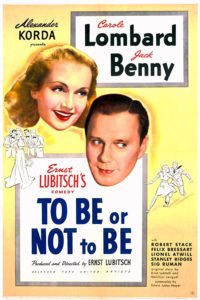
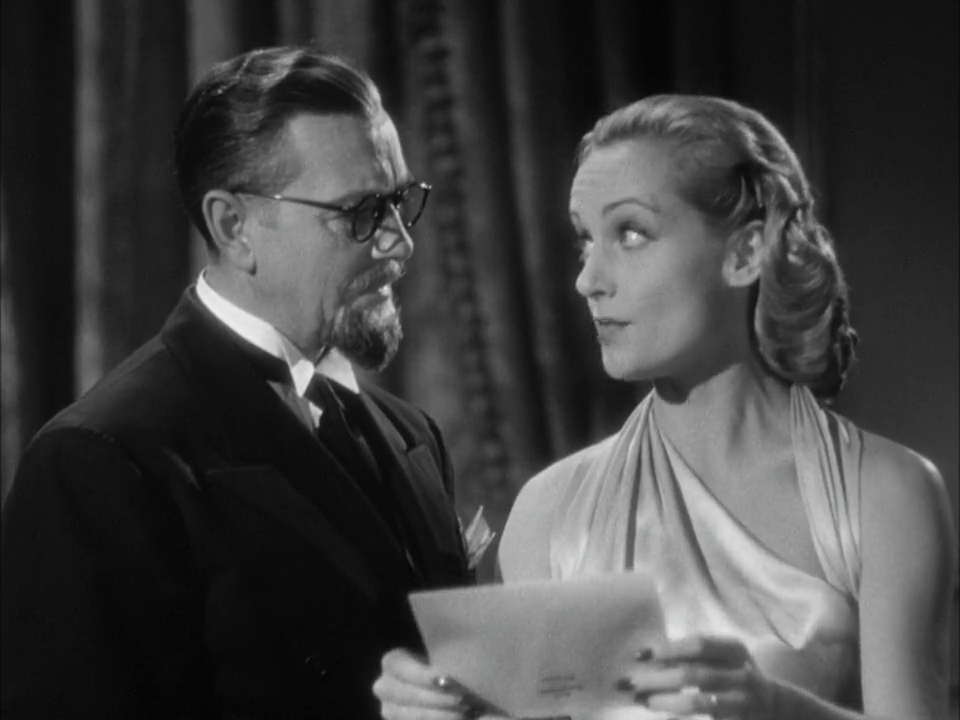
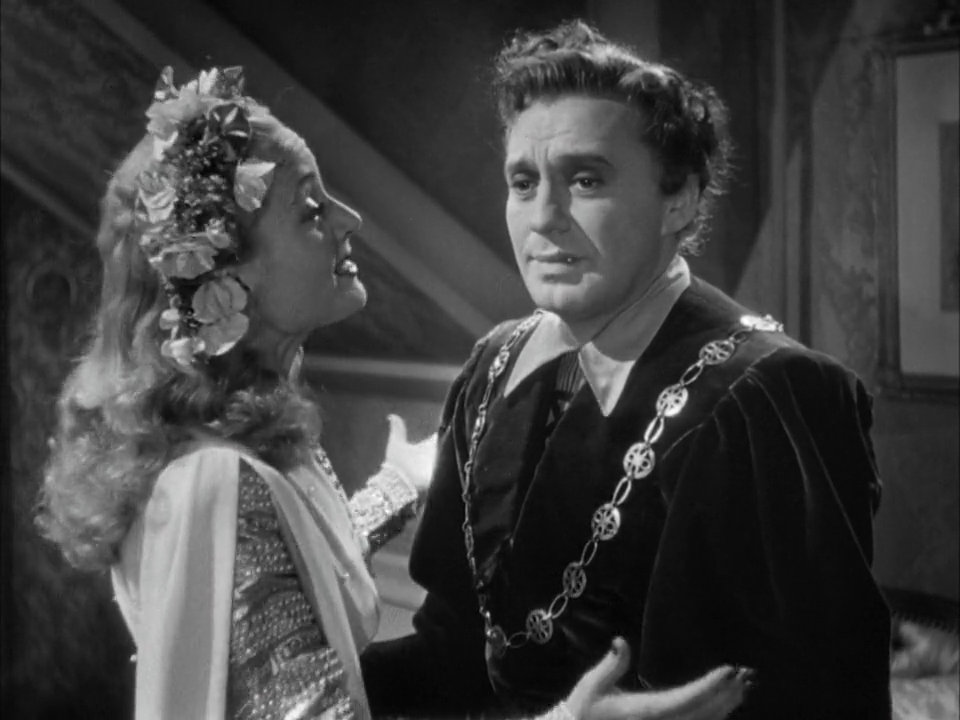
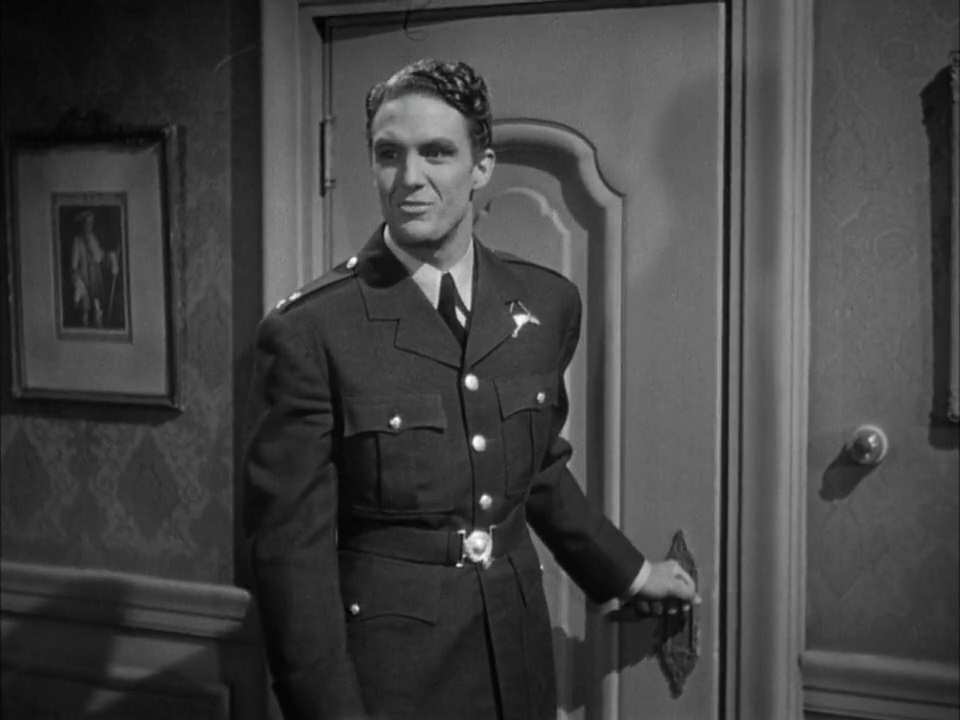
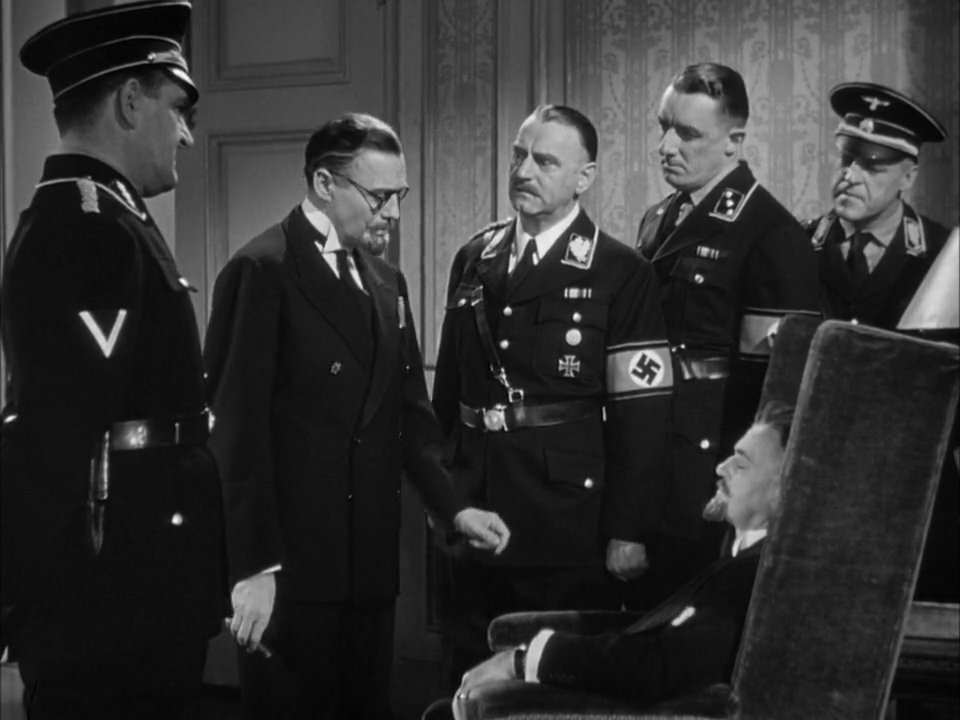
2 thoughts on “To Be or Not to Be (1942)”
Screamingly, gaspingly hilarious virtually from first frame till last. No more really need be said.
However, it’s still highly regarded and revived so still a must see. I saw the respectable Mel Brooks remake (1983) recently and enjoyed it as well, but it can’t hold a candle to the original which is obviously must see entertainment.
A no-brainer must-see (and one that holds up well on repeat viewings). As per my post in ‘The ’40s-’50s in Film’ (fb):
“I hate to leave the fate of my country at the hands of a ham.”
‘To Be or Not To Be’ (1942) [film link in comments]: Ernst Lubitsch’s best film had a double-whammy against it when it was released: not only was the satire (of Nazis) widely considered immediately to be in bad taste but its star (Carole Lombard) met a tragic death in a plane crash about a month before the film’s release. Apparently critics were divided, with (I believe) the larger number of them dismissing the film for ‘obvious’ reasons. Even the Academy basically shunned the film, giving it a single nomination (best score) at awards time. However… time has not only been kind to the film, it has been generous. ‘TBONTB’ is now seen as one of the best comedies in cinema history… with good reason. The script by Edwin Justus Mayer (co-written by an uncredited Lubitsch) is pure gold. In the first 30 minutes, it’s all frothy and light – but, from then on, we are entertained non-stop by a delicious (and seamless) blend of comedy and drama. Just as it is irreverent towards Hitler, it is equally (and knowingly) ‘ruthless’ in its depiction of actors. As the less-than-talented Joseph Tura (who believes himself an artist beyond compare), Jack Benny never had a better role. The same can almost be said about Lombard – except that her Maria Tura is very close to her memorable portrait of Lily Garland in Hawks’ ‘Twentieth Century’: both women are equally vain but, whereas Lily never lets us forget her intrinsically lower-class background, Maria is high-class personified – and much smarter than Lily could ever be. Still, both are sterling characterizations. Lubitsch, first and foremost a man of taste, preferred his comedy to reflect verbal intelligence and sophistication (there are no belly-laughs here but also no cheap ones – and certainly no pratfalls). Progressively complicated, ‘To Be…’ is also endlessly inventive – right up to the film’s final, well-earned laugh. It is about as close to a work of genius that a film can get.